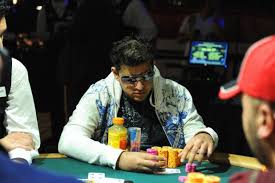
Gambling addiction in Pakistan, much like in other parts of the world, can have profound psychological effects on individuals, often leading to emotional turmoil and distress. At its core, gambling addiction creates a vicious cycle of hope, loss, and despair. Gamblers initially feel the thrill of winning, which triggers a rush of positive emotions such as excitement and relief, but they often follow this with the crushing weight of losses. The cycle of winning and losing exacerbates feelings of anxiety and guilt, making the individual more desperate to recapture their winnings. As losses mount, so does the gambler’s sense of hopelessness, leading to emotional withdrawal from friends and family. Over time, addiction can cause a person to isolate themselves socially, as they become consumed by the need to gamble and chase that fleeting moment of success. This emotional roller coaster can result in deep feelings of depression, low self-esteem, and a persistent sense of failure.
Anxiety and Stress: The Psychological Cost of Financial Strain
For many gamblers, mounting financial problems closely tie to the psychological effects of addiction. In Pakistan, where financial stability is a key concern for many families, gambling can cause severe financial strain. As addicted gamblers continue to risk more money in an attempt to recover losses, they may borrow money from friends, family, or even resort to illegal methods like taking out loans from lenders with high-interest rates. This growing debt creates immense psychological stress, as the individual becomes overwhelmed by the pressure to repay what they owe. The anxiety of managing mounting debts can cause panic attacks, sleeplessness, and constant worry, further exacerbating the gambler’s mental health problems. In some cases, the financial burden becomes so unbearable that gamblers may turn to drastic measures such as theft, fraud, or even self-harm as a way of coping with the overwhelming emotional and psychological pain.
Depression and Feelings of Shame
Gambling addiction often leads to a state of profound depression, especially when the gambler faces repeated losses. In a country like Pakistan, where people highly value social reputation and honor, gambling addiction can be particularly damaging. The shame of losing money and failing to meet family or social expectations can lead to intense feelings of guilt and self-loathing. This is particularly true in a context where society considers gambling a moral transgression, causing the person to feel isolated from both their social circle and their religious community. In Pakistan, where family and community support structures are often central to one’s identity, the addict’s sense of worth can be significantly diminished when they feel they have let down those closest to them. This isolation and shame can lead to suicidal thoughts, as the individual struggles to cope with the weight of their actions. For many, gambling addiction imposes psychological effects that act as a silent burden, often hidden behind a veneer of normalcy.
Cognitive Distortions: The False Belief of a Big Win
One of the most insidious psychological effects of gambling addiction is the development of cognitive distortions—false beliefs that perpetuate the gambler’s compulsion to continue. A common distortion in gambling addiction is the “gambler’s fallacy,” the belief that a loss must be followed by a win, or that a “big win” is just around the corner. This illusion fuels the addiction, as the gambler convinces themselves that their luck will change if they keep playing. In Pakistan, this belief is often reinforced by the excitement of betting on cricket or other popular sports, where the unpredictability of the game makes it easy for individuals to justify their continued engagement. This belief in an impending win creates a psychological trap, as the gambler continues to take risks in the hope of striking it rich, despite mounting losses. Distorted thinking patterns make it incredibly difficult for the individual to break free from the cycle of gambling, as they become consumed by the false hope of winning big.
Impact on Relationships and Social Functioning
The psychological effects of gambling addiction extend beyond the individual to impact relationships and social functioning. In Pakistan, where family and community connections are vital, the strain caused by gambling addiction can lead to broken relationships, marital problems, and even social ostracism. Gamblers often lie or hide their behavior from loved ones, and when the truth eventually comes out, the damage to trust can be irreparable. Spouses may experience feelings of betrayal and frustration, and children may suffer from neglect or emotional distress. In some cases, addiction can escalate to such an extent that the gambler prioritizes the act of gambling over their family, further deepening the rift. The gambler’s withdrawal from social activities and family obligations, combined with the emotional instability caused by their addiction, creates a toxic environment that can have lasting effects on everyone involved. This further isolates the gambler, reinforcing their dependence on the addiction as a coping mechanism.
The Struggle to Seek Help: Cultural Barriers to Recovery
Despite the severe psychological effects of gambling addiction, seeking help remains a significant challenge in Pakistan. There is often a deep sense of denial among those affected, compounded by cultural and religious stigmas surrounding addiction. Gambling, especially when viewed as a moral failing, can make individuals reluctant to reach out for professional help. In a society where mental health issues are often misunderstood or stigmatized. There is a lack of open discourse on the psychological toll of gambling addiction. Religious and cultural pressures can discourage individuals from seeking support by making them feel ashamed of their behavior or fear being ostracized. This isolation exacerbates the psychological suffering of the gambler, making it even harder to break free from the addiction. The lack of adequate addiction treatment services. Combined with the social stigma, creates a significant barrier to recovery for many people struggling with gambling addiction in Pakistan.
Conclusion: A Hidden Crisis with Profound Psychological Effects
Gambling addiction in Pakistan is a hidden crisis, one that takes a severe psychological toll on individuals and their families. The emotional and mental strain caused by financial losses, shame, anxiety, and depression creates a vicious cycle that is difficult to break. The psychological effects go beyond just financial ruin—they reach into the deepest corners of a person’s self-worth, relationships, and mental health. As gambling continues to be a prevalent but stigmatized issue in Pakistan. There is an urgent need for greater awareness and access to mental health support for those affected by gambling addiction. Addressing this problem requires shifting how society views gambling and adopting a more compassionate approach to mental health. Where individuals struggling with addiction can find the help and understanding they need to heal.
Experience Thrills and Big Rewards at KKClub Casino – Pakistan’s Premier Gaming Hub!



